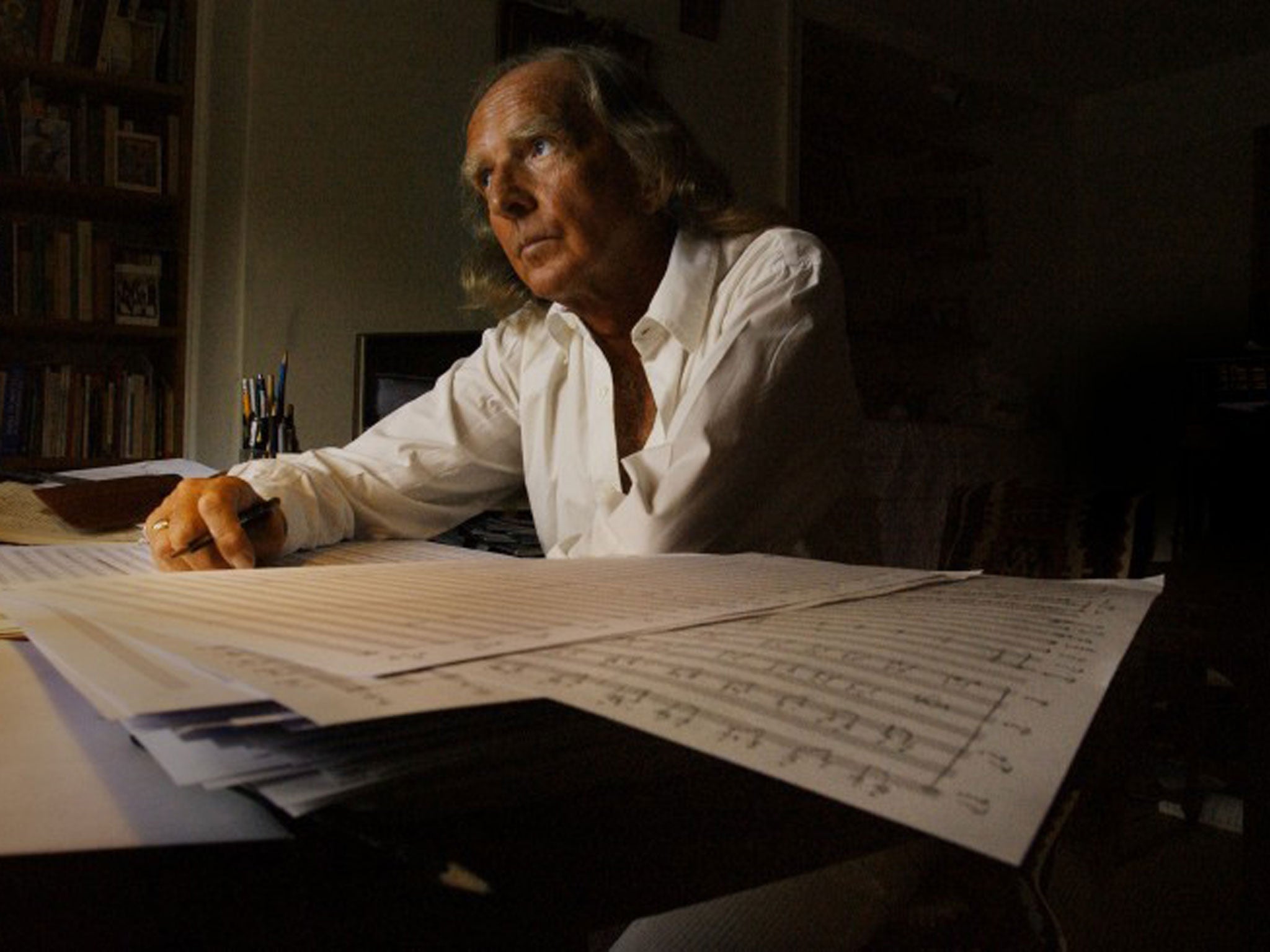John Tavener concert at Southwark Cathedral becomes his memorial service
After the moving encore came the tears

Your support helps us to tell the story
From reproductive rights to climate change to Big Tech, The Independent is on the ground when the story is developing. Whether it's investigating the financials of Elon Musk's pro-Trump PAC or producing our latest documentary, 'The A Word', which shines a light on the American women fighting for reproductive rights, we know how important it is to parse out the facts from the messaging.
At such a critical moment in US history, we need reporters on the ground. Your donation allows us to keep sending journalists to speak to both sides of the story.
The Independent is trusted by Americans across the entire political spectrum. And unlike many other quality news outlets, we choose not to lock Americans out of our reporting and analysis with paywalls. We believe quality journalism should be available to everyone, paid for by those who can afford it.
Your support makes all the difference.Seldom had the cathedral been so full, and not often for so poignant a reason. On Monday, John Tavener had eloquently stated his artistic credo on Radio 4's Start the Week, and on Tuesday he died.
Friday night's concert had been scheduled months ago, but instead of a cheerful celebration of his latest choral work – a setting of three Shakespeare sonnets – it turned into his memorial service with family, friends and fans – the opening line of the last poem sounding a note of awful appropriateness: "No longer mourn for me when I am dead."
The performers were Tavener's favourite singers, the South Iceland Chamber Choir, who began with some arrangements of Icelandic traditional songs. The composer was drawn to the singers' sweetly modal harmonies and clear kinship to medieval English carols. After a somewhat overblown premiere by a young composer, it was time for Tavener's own music, including "The Lamb" and "Song for Athene", his tribute to a friend killed cycling, and sung at Princess Diana's funeral.
Tavener had written his a cappella Three Shakespeare Sonnets in gratitude to his wife after she had nursed him through a dangerous illness in 2007. In it he had chosen to create an opposition between soprano soloists singing very high angular lines and the rest of the choir laying down a soft carpet of continuous sound, which suited the bitter ironies of the sonnet. The encore was Tavener's gentle setting of the Lord's Prayer, which left many of the audience in floods of tears.
'Three Shakespeare Sonnets' will feature in 'The Choir' on Radio 3 today
Join our commenting forum
Join thought-provoking conversations, follow other Independent readers and see their replies
Comments